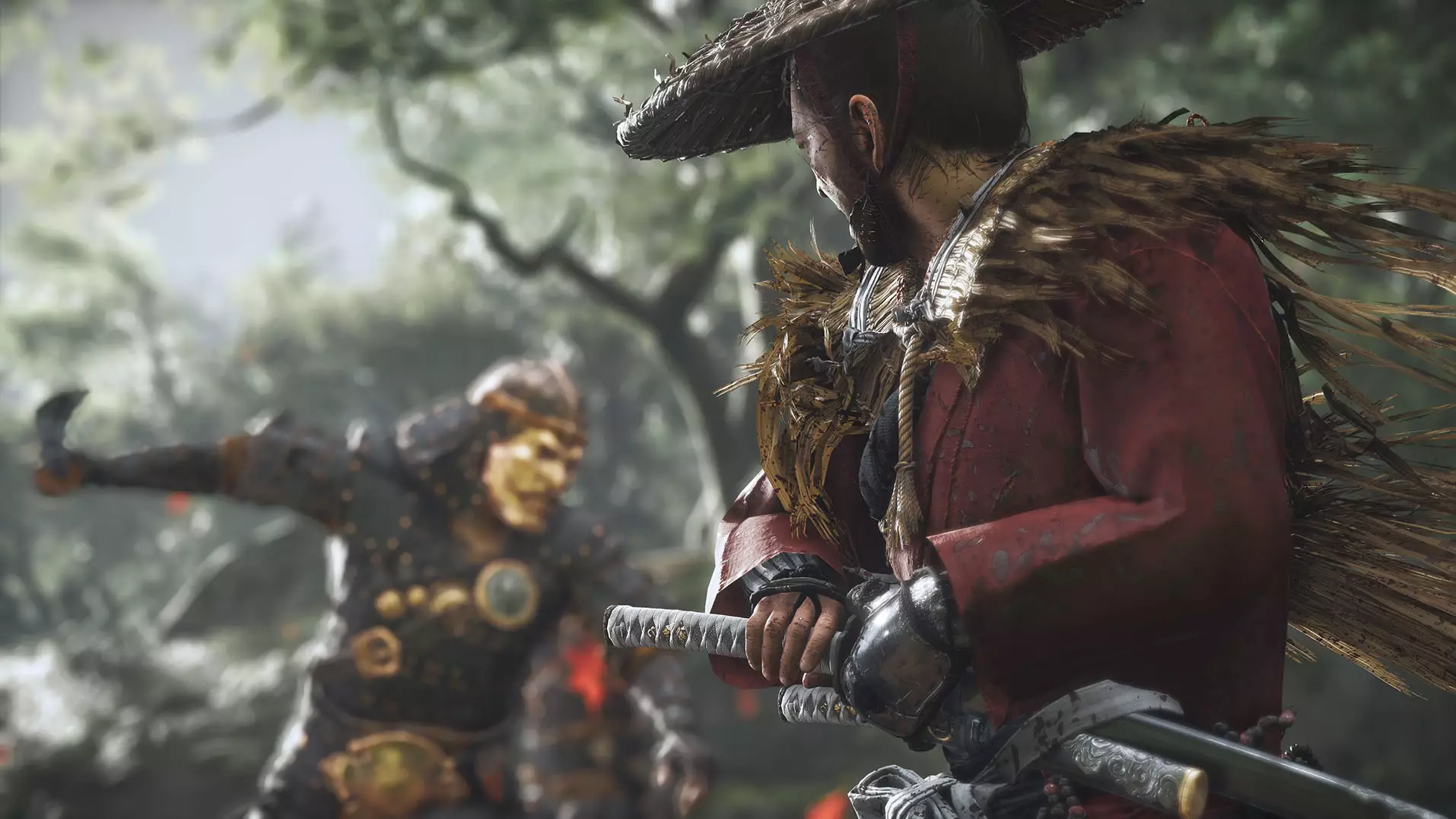
After years of development and only a few teasing trailers, we finally got a good look at Sucker Punch's Ghost of Tsushima. The open-world samurai game set in 13th century Feudal Japan was the focus of a 20-minute State of Play, showing off the game's windswept world, stripped-back UI, and violent, unforgiving combat. But what was only hinted at the video was the core journey of the game: which sees you transform from an honourable samurai into a ghost, a warrior who will do anything to win in the fight against the Mongol invaders.
We spoke with Ghost of Tsushima's game director, Nate Fox, about how you're drawn into making that transformation - and what it means for the game's world and how you'll play in it.
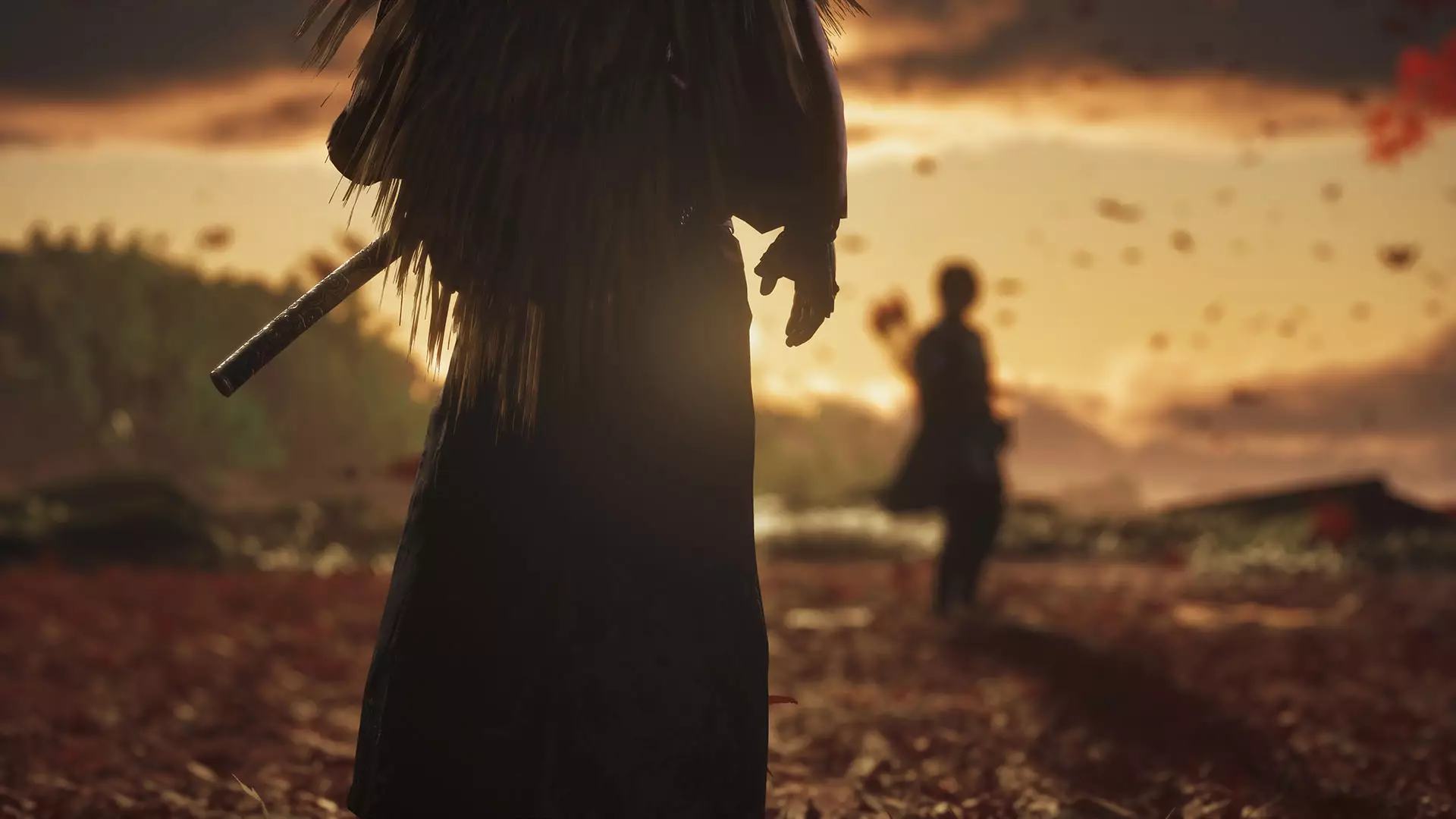
While Sucker Punch has been working on Ghost of Tsushima ever since it launched Infamous: First Light back in 2014, the first seeds of the samurai epic actually date all the way back to 2002, when Fox was writing dialogue for debut Sly Cooper game. "One of my inspirations was this book Usagi Yojimbo," he tells us, "which is a samurai comic about anthropomorphised animals, where they speak to each other with a lot of dignity."
Fox and the team devoured samurai comics and films after that and "fell in love" with the setting and tropes of samurai media, and felt it was a perfect fit for an open-world game. "I don't know if you've ever seen the movie Yojimbo by Akira Kurosawa," Fox asks. "It's just... it's like a hand-in-glove love relationship to an open-world game design where a wandering samurai comes into a town and solves a problem with his sword."
At the heart of Ghost of Tsushima is this idea that you play a wandering warrior who solves problems according to a code. You play as Jin Sakai, a samurai who grew up on the Japanese island of Tsushima, and who has returned to the land to help fight against the Mongol invasion.
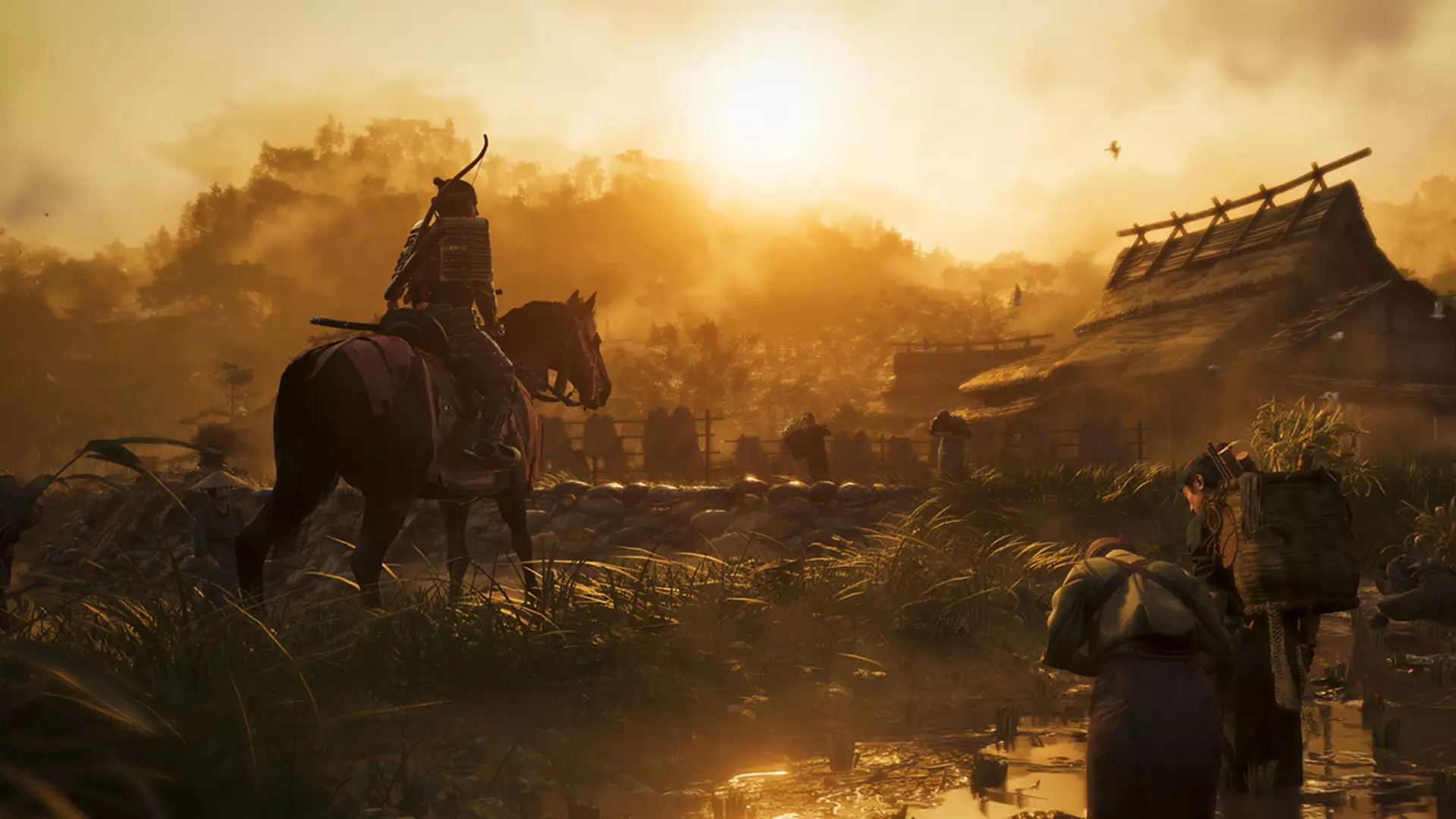
"He starts the game as a samurai who believes in death before dishonour, and always looks an opponent in the eyes before fighting him and taking his life," Fox explains. In the recent State of Play demo we saw Jin stride through the front gate of a Mongol encampment and challenge the soldiers to duel. However, in his fight against the Mongols, Jin will have to sacrifice that code, shedding it to become a ghost - a warrior who does what it takes to win, whether that's honourable or not.
"He has to give up that code in order to win against impossible odds," Fox says. "He has to transform himself over time, bit by bit into the ghost to free his island."
The catalyst for this change is the Mongol enemy. "We needed a set of enemies who were brutal," Fox says. "The Mongol invasion of Japan was a great fit. There are these people from across the ocean coming to destroy a samurai's culture. That is a fight worth fighting."
The Mongols have a complex history. Across multiple conquests in Asia and Europe, their armies killed millions of people. There are accounts of their armies executing the population of entire cities after refusing to surrender - a terrifying message to neighbouring towns not to put up a fight. However, in the lands the Mongols captured there are stories of the prosperity that came from safe trade routes and peace from previously warring regional factions. Something of that complexity is captured in Ghost of Tsushima, according to Fox "In [the Mongols'] minds [they're] bringing everlasting peace to the people of Japan," he says. "They're there to bring their version of order."
This depiction of the Mongols in Ghost of Tsushima is threaded into the very first trailer for the game. "You meet our main antagonist, Khotun Khan," Fox says. "[He] very reasonably, very rationally, asked the leader of the samurai to surrender - and that it is, in fact, the best way to bring the most peace to people of the island. Mongols aren't mindless hordes. [They're] trying to do what they feel is best for the people of Japan from their vantage point as members of the Mongols."
While the main trunk of the story will deal with Jin's fight against the Mongols, quests and side-quests will show you the many ways people are dealing with the invasion. There are those who fought and lost, those who surrendered, and those who are still fighting. "The game is an anthology of stories," Fox explains. "The stories are all different and the way that the Mongols are interacting with various people on the island, choices that they're making, choices that other Japanese people are making in order to survive, that creates the diversity of experience."
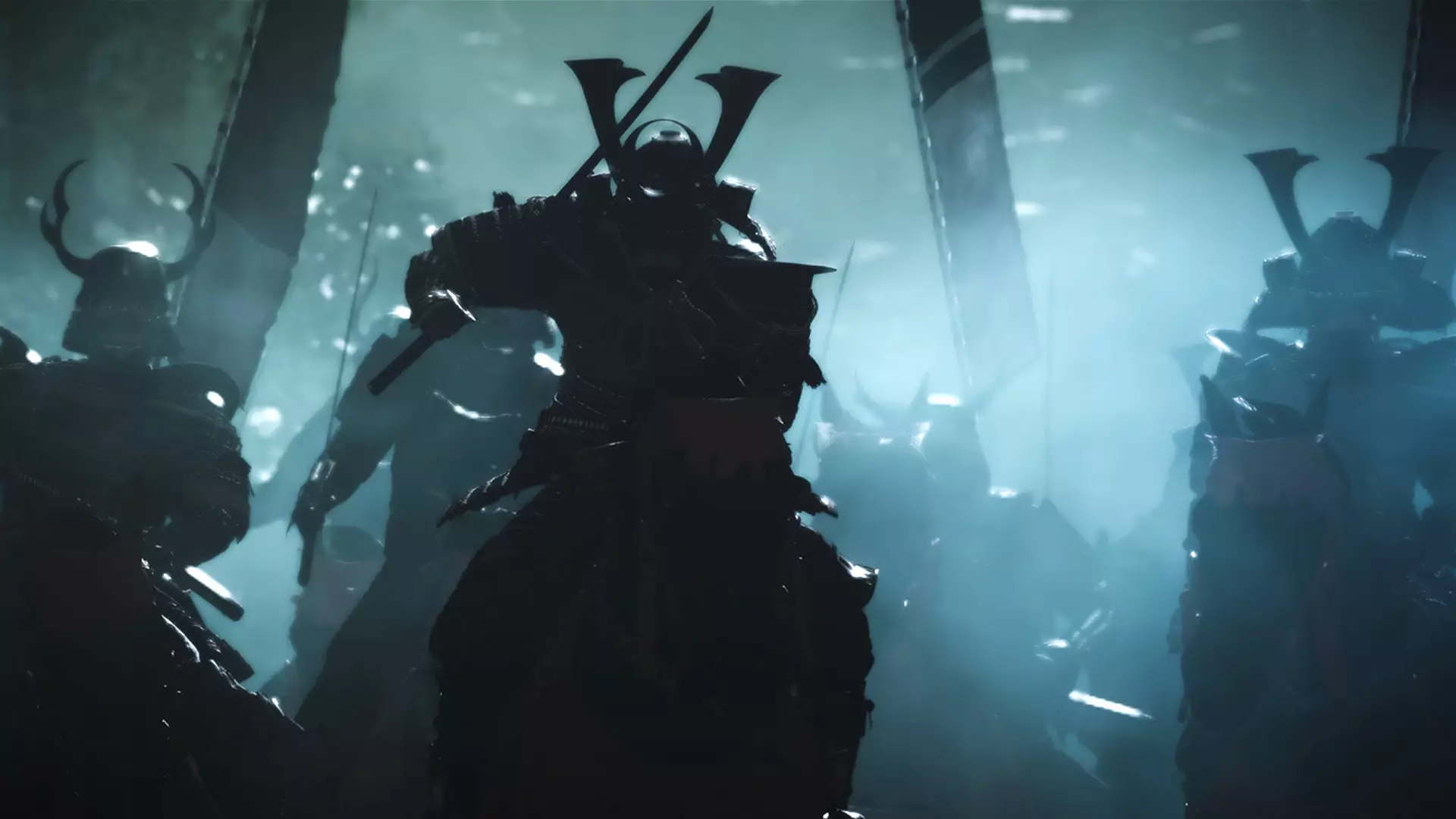
While the story will force you to become the ghost, the way you choose to play will remain open. "It's not a binary thing," says Fox, "you don't start off as a samurai and then snap, you're the ghost". We saw this in the State of Play demo. After seeing the honourable samurai approach to the camp attack, in which Jin openly engages with the soldiers, we're shown a ghost playthrough. Here, Jin sneaks into the camp and uses firecrackers to distract enemies before stabbing them in the back, and fights so viciously his enemies start to back away, afraid of him. However, the option to duel soldiers was still there, like in the first playthrough.
There isn't a morality system that unlocks or blocks abilities because you've strayed too far from the samurai code. "Jin is a samurai," Fox says. "His ability to fight with a sword really, and elegantly, never goes away, ever. However, you get more and more abilities to tackle problems outside of a samurai perspective. So it's not a binary thing where you're [playing as a] samurai and then he flips it over and he's a ghost. It's a smooth continuum.
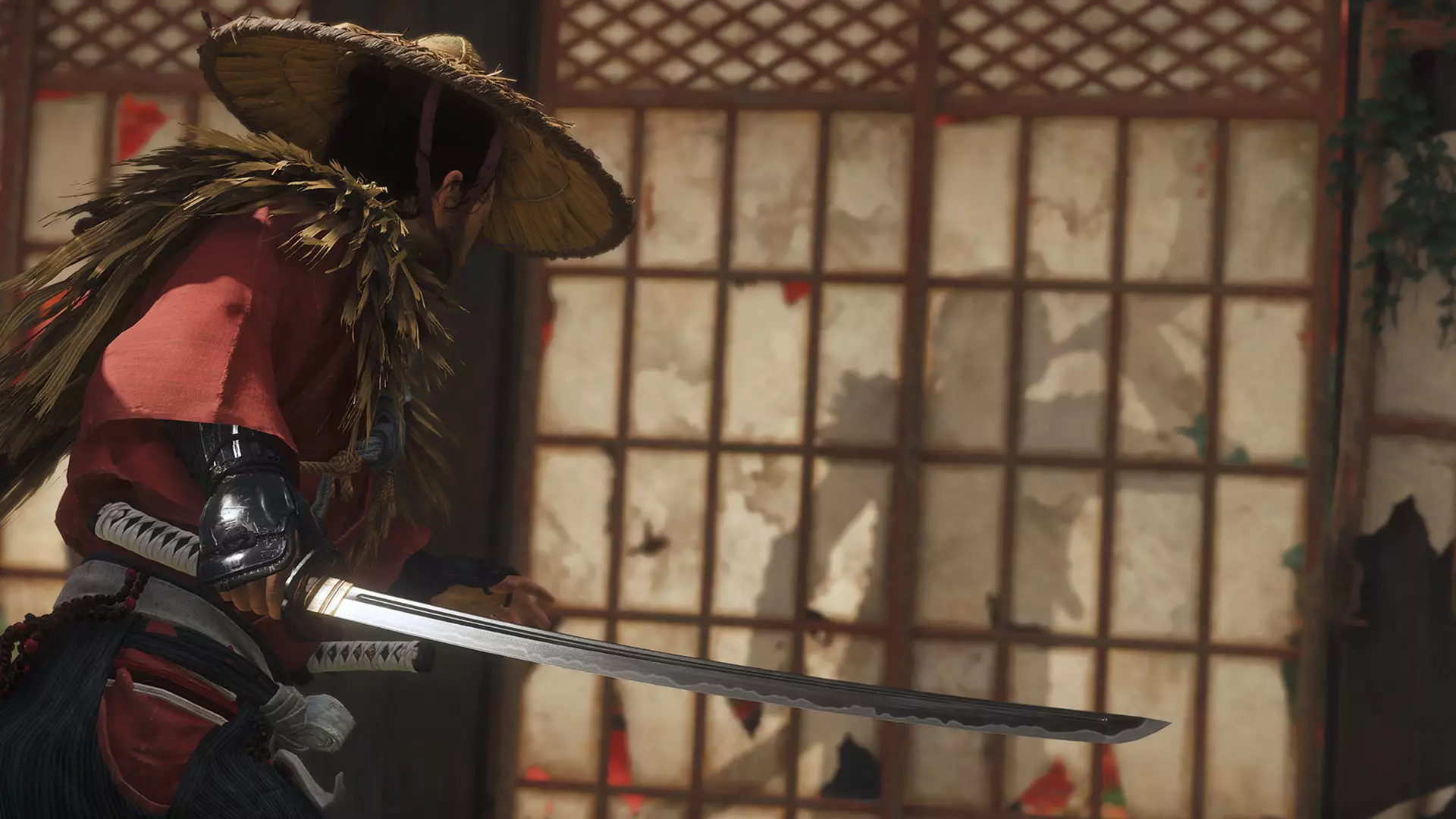
"In the State of Play video, even when he's going in as a ghost, he still had the option to challenge that Mongol to a standoff. The player just decided not to because they thought there's better advantage to using a different route of attack."
However, while there may not be a morality system, Fox wouldn't confirm or deny if there was a fear system. In the demo we see soldiers becoming scared of Jin's attacks, but that's just in the moment, as the impact of that playstyle could have broader effects in the game.
"The Mongols start to view the ghost as this sort of Boogeyman," Fox explains. "He becomes the monster in the monster movie." Fox wouldn't say how dynamic this fear is - whether your reputation will grow larger and faster if you employ more scary tactics, or if it's tied to how far you are in the story. Though, I've hope that is because of themes Fox kept returning to in our interview: player choice.

It's through choice and reflection, Fox explains, that a world feels alive. "The ghost that Jin becomes is up to the player to decide: they choose what skills to invest and grow, and the play style that they're more interested in. [But] when a samurai does something that is outside of the standard canon of samurai action, you want the people around you to recognise that, sometimes positively, sometimes negatively. If they didn't, the world would feel inert."
That freedom of choice is also behind why Ghost of Tsushima doesn't use waypoints, quest markers, or a mini-map to guide you. Instead, you'll have hints in the world to draw you in while you explore. "We want you to look into the game world, we want you to look for small irregularities or animals or anything that feels like it's driving you deeper into being present in that space," Fox says. "It's something video games are fantastic at and we just wanted to go deeper towards that, so that you felt the experience."
Fox and the team hope this approach will leave you free to engage with the character of Jin and their transformation more tightly than if you felt dictated to. "The thing that is the most important for us as developers is that one instant, when you find yourself in a forest, and you're just breathing and you feel like you're present in the game world," Fox explains. "[You have] a strong idea of what it is you just came from and what it is you're going to and deciding - because you're in charge - to not do it. Right, that is you being present in the world because the game's not dictating to you any answer. But it's setting up the experience of being this character in the world, being a wandering samurai."
Featured Image Credit: Sucker Punch ProductionsTopics: Ghost of Tsushima